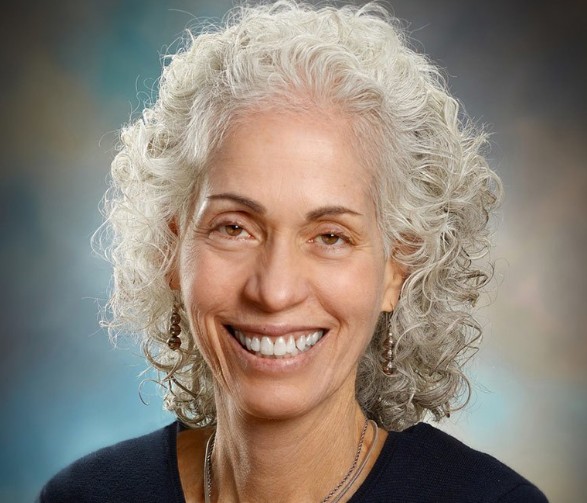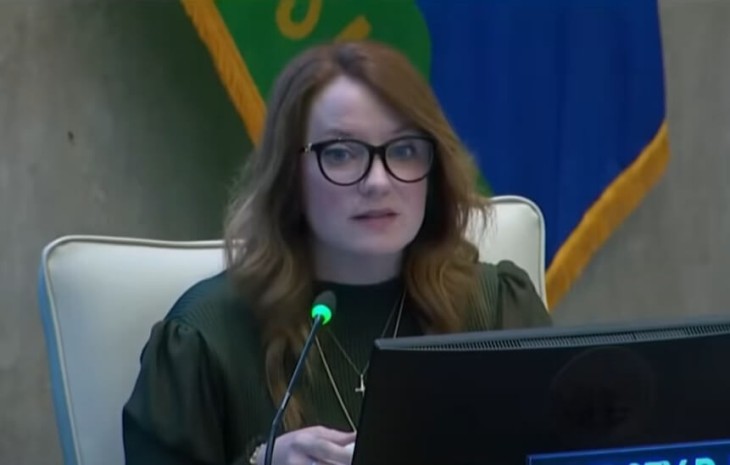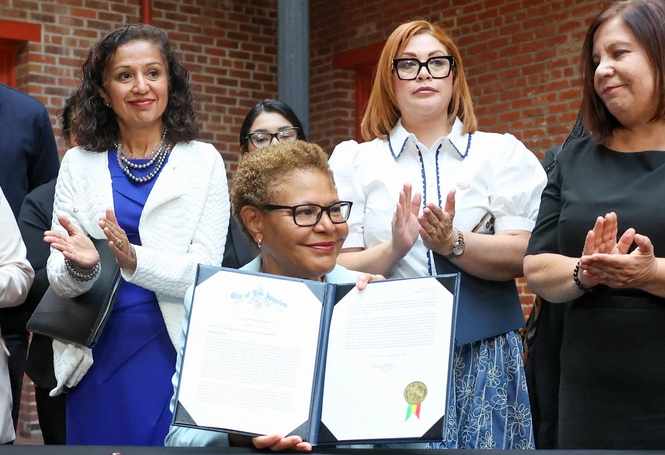Corporations will continue to argue they are extensions of people and are therefore entitled to similar legal protections, but the City of Santa Monica resolved at City Council’s Tuesday meeting to limit the rights of big business in public campaigns.
The resolution now pits Santa Monica in a larger campaign against the Supreme Court, which in 2010, ruled corporations were not to be limited in the amount of money they expend in public elections.
The 6-0 vote by the council members means that City Hall is taking a stand on how much corporate money influences an election.
Accordingly, the City now supports the Move To Amend coalition in seeking to overturn Citizens United vs. Federal Elections Commission. In 2010, the Supreme Court ruled money is a form of speech worthy of First Amendment protection. By limiting the amount of financing a corporation donated to a campaign was effectively abridged the corporation’s First Amendment rights to free speech.
The council resolution refuted that decision by stating “money is not the same as speech” and, accordingly, calls “for an amendment to the U.S. constitution that prohibits corporate contributions to political campaigns.”
“On January 21, 2010 the U.S. Supreme Court issued a ruling in Citizens United v. Federal Election Commission that rolled back legal limits on corporate spending in the electoral process and affirmed that corporations have the rights of ‘persons,’” the staff report to council members stated.
“In the wake of this ruling, a coalition called MovetoAmend.org was created with the primary goal of amending the U.S. Constitution ‘to firmly establish that money is not speech, and that human beings, not corporations, are persons entitled to constitutional rights,’” the report continued.
According to City Attorney Marsha Jones Moutrie, the resolution has no legal impact on local elections.
Furthermore, the resolution is not incorporated into the Municipal Code, meaning the recent laws governing campaign contribution limitations are not impacted by the council’s support of the Move To Amend coalition.
“It’s a statement to the world (about) what you think should be done, but it isn’t a law,” Moutrie said.
The community seems amenable to the council’s resolution.
“It’s got some punch to it,” resident Michael Toney said. “It expresses your point of view (and) it’s not antagonistic.”
Resident Crystal Anderson said it was illogical to view corporations and humans as the same.
“Corporations are usually not just one person,” she said. “So it shouldn’t be (any situation where) they have a right like a person. They just can’t be allowed to let their money speak.”
Officially scaled back from the proposed resolution presented to them by the Taskforce on the Environment in January, the original draft resolution included potential support about the “threats to democracy posed by ‘corporate personhood.’”
Mayor Pro Tem Gleam Davis said corporations sharing rights with humans is not always a negative, citing a case where there were attempts to force the NAACP, which organized as a corporation, out of operation by requiring it to disclose its membership lists. Courts ruled the civil rights group was entitled to privacy rights similar to people.
“Certainly corporations are not people in many ways, shapes, or forms,” Davis said. “Corporate personhood has not always been considered to be a bad thing.”
Meanwhile, Sacramento has also joined the movement against the Supreme Court ruling, with the Assembly voting 48-22 on March 22 to approve Assembly Joint Resolution 22 and urge Congress to overturn the 2010 decision.
“The Citizens United decision is judicial activism run amuck,” Assembly member Bob Wieckowski (D-Fremont) stated. “For more than a century, Congress and the Supreme Court have recognized the need to differentiate between people and the vast amount of wealth at the disposal of large corporations. The floodgates were opened by this ruling and now a small number of very wealthy interests are having a greater influence on our national politics than ever before.”
Other states passing similar resolutions include Hawaii and New Mexico.
Congress does not have direct power to override a Supreme Court ruling. Instead, if the Supreme Court interprets a specific portion of the Constitution and its amendments, Congress, in cooperation with the states, may seek to a new constitutional amendment to change the very issue it disagrees with.
Interestingly enough, if the Supreme Court solely bases its decision on an interpretation of federal law, Congress may challenge that interpretation with an amendment or correction to that specific piece of legislation.
And another twist is still possible. If the Supreme Court invalidates a law based upon the Constitution, Congress may “correct” that legislation with new language that either circumvents or factors in the justice’s decision.

























